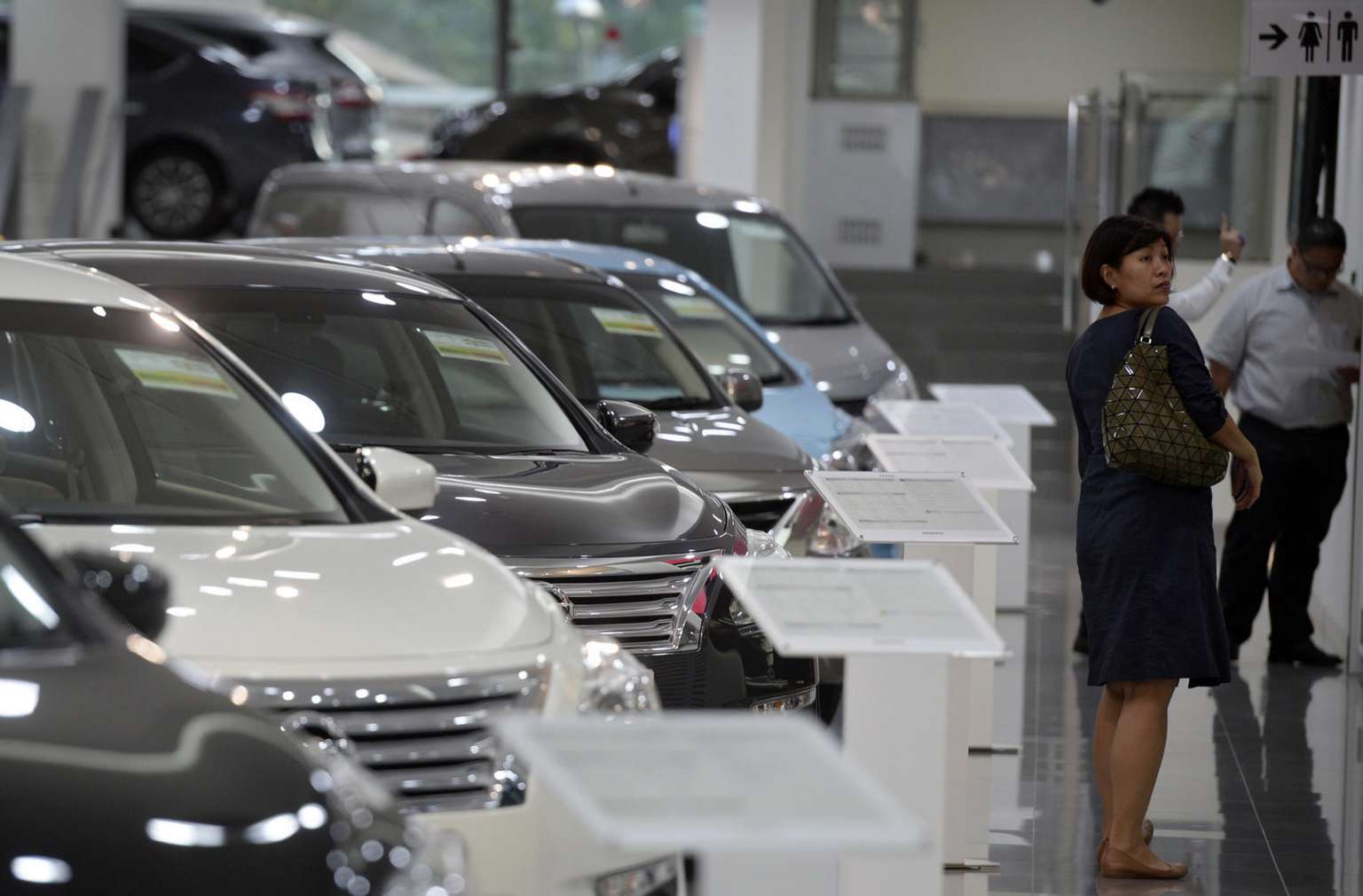Parallel imports zoom ahead in car sales
Non-authorised agents hold 22% share in Q1, with Honda, Toyota, Merc being hot sellers
Sign up now: Get ST's newsletters delivered to your inbox

Customers at Tan Chong Motor showroom, a distributor for Nissan cars, on Jan 6, 2016.
ST PHOTO: MARK CHEONG
Follow topic:
Parallel imported cars are accelerating hard in the sales lane and have, in the case of one brand, overtaken sales by the authorised agent.
In response to queries from The Straits Times, the Land Transport Authority said 4,330 new cars registered in the first quarter of this year were sold by parallel importers - companies which are not officially appointed by the manufacturer.
That represents 21.8 per cent of the total number of new cars sold in the three-month period.
The market share is nearly double what parallel imports had at the same time last year.
Three brands make up the bulk of parallel import sales - Honda, Toyota and Mercedes-Benz.
In the case of Honda, parallel imports actually outsold cars registered by authorised agent Kah Motor, driven by the popularity of the Vezel compact crossover.
In the first three months, parallel imported Hondas accounted for 64 per cent of all Honda cars sold here.
For Toyota, the figure was 38.3 per cent, fuelled by sales of the Harrier SUV and Sienta six-seater.
And for Mercedes-Benz, the C-class sedan was the most popular parallel import choice.
Businessman Desmond Koh, 57, said he picked a Honda Vezel from a parallel importer "mainly because of the lower cost".
Today, parallel importers are retailing the car at around $100,000 - at least $10,000 lower than Kah Motor's equivalent HR-V.
Mr Koh said: "The other thing is that the model is so popular, I don't have to worry about availability of spare parts."
Kah Motor general manager Nicholas Wong said parallel importers have an "unfair advantage" in the form of a discount on their emission tests.
Whatever their emission level is, they get an effective 8 per cent waiver. Often, this puts their cars in a higher carbon rebate bracket than an equivalent car sold by an authorised agent.
In the case of the Vezel, it gets $5,000 more in rebate, thus contributing to its price competitiveness.
"We welcome competition," Mr Wong said. "But it has to be on a level playing field."
Mr Eddie Loo, managing director of parallel importer CarTimes Automobile, said: "I don't think it's unfair. What's unfair is that every single car that a parallel importer sells must be inspected by the authorities.
"You know how tedious that can be? There is a huge backlog, and I've waited three, four months to get my cars approved."
Typically, parallel importers do not do well when Certificate of Entitlement prices are high as they generally do not have the financial muscle to outbid big authorised agents.
So, in a year like 2012, when COE premiums were hovering at $60,000 to $90,000, their market share slipped to a mere 5.6 per cent.
But in 2008, when premiums were $10,000 to $15,000, their share soared to nearly 24 per cent.
Last year, their slice of the pie was 14.8 per cent. But judging by the first quarter, it could zoom past 25 per cent for the whole of this year.

